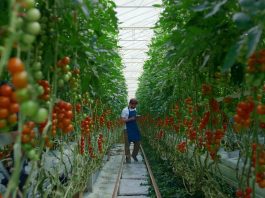Applied Microbiology International (AMI) has issued a warning to the UK Government about microbiological considerations in the Sustainable Farming Incentive (SFI).
The Sustainable Farming Incentive, a cornerstone of the UK’s Environmental Land Management schemes, aims to bolster both food production and environmental conservation by incentivising farmers to adopt sustainable practices.
However, AMI has sounded the alarm, emphasising the critical need for microbiological insights in shaping the UK’s agricultural landscape, particularly concerning initiatives like SFI.
The sustainable farming initiative was reviewed by experts in the Food Security Advisory Group and the Healthy Land Advisory Group, which has identified potential microbiological issues.
AMI is now urging the UK Government to take action to mitigate these risks and ensure truly sustainable farming practices across the nation.
Aim of the Sustainable Farming Incentive
The Sustainable Farming Incentive is a prominent environmental land management scheme in the UK, offering financial benefits to farmers adopting environmentally friendly practices.
Earlier this year, Defra Secretary Steve Barclay unveiled substantial updates to the SFI during the Oxford Farming Conference, branding it the most significant upgrade to UK farming schemes post-Brexit.
These updates include enhancements such as increased payments for participating farmers, introducing around 50 new actions, updating existing actions, and introducing 21′ premium payments’ for actions with the most substantial environmental impact.
In light of these updates, the AMI Policy Team engaged experts from advisory groups to evaluate the SFI’s compatibility with microbiological perspectives.
They assessed whether the scheme adequately considers microbiological factors and their implications on farming practices, aiming to ensure its effectiveness and alignment with broader environmental goals.
The policy team explained: “It became apparent from our experts that it majorly lacked microbiological considerations, which greatly reduces the potential benefits that could be reaped from the initiative since microorganisms are ubiquitous in the agricultural environment and have known roles that relate to and directly impact environmental health, resilience, and food production.”
Winter cover crop concerns
The experts expressed specific concerns regarding the inclusion of multi-species winter cover crops as one of the actions listed in the SFI.
They emphasised the need for greater nuance in this action, highlighting that different types of cover crops can have varied effects on subsequent crop species planted.
For instance, while brassicas are recommended as one of the cover crop species in the SFI, certain brassica species can harbour pathogens detrimental to subsequent brassica species, such as oilseed rape.
Additionally, brassicas do not support arbuscular mycorrhizal fungi, which are beneficial to plant health.
Therefore, while brassicas may be harmless in some contexts, they could be less beneficial or even harmful in others. However, the current SFI framework fails to consider these potential impacts.
AMI also explained that there is a missed opportunity with this action because it informs farmers that they must destroy winter cover crops at the end of the season, eliminating their sustainable recycling potential through composting or use in biofuel production.
Risk of pathogens
The policy team highlighted a gap in the management of hedgerows, emphasising the absence of guidance on handling cut hedgerow material.
They underscored the importance of addressing this issue by pointing out that certain weed species in hedgerows can harbour crop pathogens.
To mitigate the risk of pathogen transmission from weeds to crops, they recommended that farmers be informed of this risk and that a management protocol for cut material be incorporated into the SFI.
Additionally, the team suggested refining the approach to providing winter bird food on arable and horticultural land. They proposed a more nuanced consideration of the subsequent crop types to be planted alongside winter bird food.
Citing evidence indicating a potential risk of pathogen transmission from wintering birds to humans, they advised against planting crops like ready-to-eat vegetables in the rotation following wintering bird food. Instead, they recommended opting for crops that are cooked before consumption, as they pose a lower transmission risk.
Focus on soil health
AMI extensively deliberated on the initiatives concerning soil health and identified opportunities for enhancing our understanding of the soil microbiome and overall soil health. These insights will be elaborated upon in a forthcoming report that AMI plans to release later this year.
AMI has also underscored the pressing necessity of incorporating more robust transdisciplinary input into the formulation of policy decisions and initiatives.
This approach is advocated to mitigate the risk of policies inadvertently leading to adverse effects or necessitating subsequent revisions.









